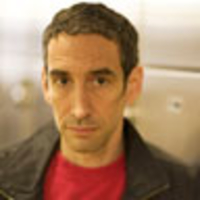
The minute that last night turned into Saturday morning, if all went right, Facebook's servers were overloaded by millions of people racing to register their personal usernames with the social media Web site, so that their friends—and anyone else in the known universe—will be able to find them even easier. Instead of trying "Douglas Rushkoff" in the site's search window, or laboriously tracking me through your own friends and groups, my name will easily show up on Google, and you'll be able to find me through a simple Facebook URL that I can trumpet to the world.
That is, if I manage to stake a claim to my own name. The personal stakes here are obvious. Doug Rushkoff is relatively unique, but pity the few thousand Robert Johnsons out there. If they’re lightning quick and fairly lucky during in the wee hours, they’ll get something sporty like www.facebook.com/RobJohnson. More likely, their overarching Facebook persona is doomed to RJ1167 or Mynameisrobertjohnsonyesitis.
This is more than 200 million users, already engaged, simultaneously scrambling in the greatest territory dash since the Oklahoma Territory's land run of 1889.
It conjures memories of the way the original Web's many possible domain names were bought up by "domain squatters" who then sold people's names back to them. (I still haven't bought DouglasRushkoff.com for $2,000 from the company that purchased it for no other reason than to sell it to me.) This weekend’s name race won’t be as commercial—it’s one name per person, with no apparent way to sell it—but it will be far more frenetic. The domain-name gold rush slowly unfurled over months and years, as did the chase for desirable Gmail addresses. This is more than 200 million users, already engaged, simultaneously scrambling in the greatest territory dash since the Oklahoma Territory's land run of 1889, albeit with fewer shotgun injuries.
But Facebook's new page-naming scheme actually brings up other memories for me, ones that hold bigger stakes for the company itself. It reminds me of the moment that AOL, formerly a completely closed network with its own content, allowed its users onto the greater Internet for the first time. Internet USENET boards were filled with what we called "newbies" wandering around and asking anyone they could find how to download pornography. Formerly high-level conversations were quickly brought down to the lowest common denominator as a huge population of people uninitiated in basic Internet etiquette flooded the networks faster than we could educate them.
The impact was far worse for AOL. By opening itself to the greater Internet, AOL revealed itself as something of a wading pool. A mini-Internet. Once people could use AOL as a portal to the true, unadulterated, global net, the company was reduced to an ISP. AOL became series of phone numbers you dial to get online, and little more. Steve Case knew his moment was over, and used his inflated stock price to purchase some real assets like Time Warner. We all know how that turned out.
Facebook must be hoping the name change will not only make the site more user friendly, but also get people to start thinking of their Facebook pages as their public faces for both personal and business activities: true home pages.
That’s a problem. Facebook's relative detachment from the Internet is not a bug, but a feature. Its only competitive advantage in the Internet space—its only reason for being—was that it was more personal, more closed off, and arguably more private than the Internet itself. Even then, the biggest problem has never been how to get people to find you, but how to not friend many of those who do. Now that we'll be quickly findable via Google, what's left to distinguish this social-networking site from the social network that is… the Internet?
Moreover, by turning Facebook pages into real Web pages, the company reveals to its users just how close to the real Internet they've been all along, while removing the last few illusory boundaries between the mini-universe of Facebook pages and the greater ecosystem of the Net.
Facebook’s only competitive advantage in the Internet space—it's only reason for being—was that it was more personal, more closed off, and arguably more private than the Internet itself.
That shift, I believe, portends the beginning of the end for this social network. That may sound preposterous, but the short history of the Internet is littered with quickly fallen giants. They all appear to be permanent features of the digital landscape—Friendster, MySpace, Orkut, Napster, CompuServe—until they're not. A minute after midnight on Saturday may just be the moment 200 million more people find themselves thrown firmly onto the Internet, and in the process make Mark Zuckerberg’s digital wading pool obsolete.
Douglas Rushkoff, a professor of media studies at The New School University and producer and correspondent for the PBS Frontline Digital Nation project, is the author of numerous books, including Cyberia, ScreenAgers, Media Virus, and, most recently, Life Inc., released this month by Random House.





